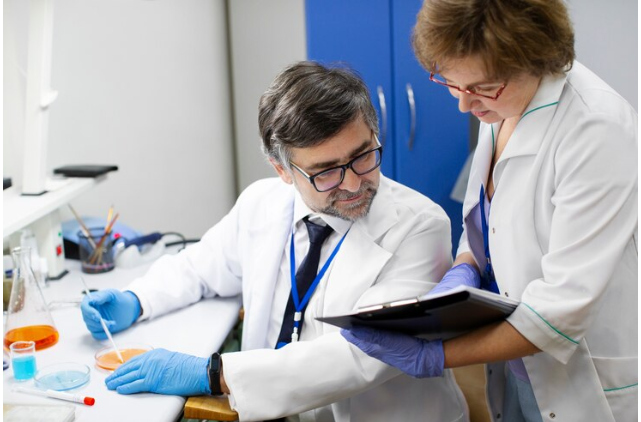In the pharmaceutical industry, compliance is not just a regulatory requirement; it is a cornerstone of trust, safety, and ethical responsibility. Pharma compliance roles are pivotal in ensuring that life-saving drugs and medical products reach the market safely, aligning with stringent regulations and preserving the integrity of the industry. As organizations navigate complex global compliance landscapes, the demand for skilled professionals in pharma compliance jobs has never been greater.
The Growing Importance of Pharma Compliance Jobs
Pharmaceutical compliance is a multifaceted domain involving adherence to laws, regulations, and ethical standards in the research, development, manufacturing, and marketing of drugs. The primary goal is to protect patients while maintaining the reputation of companies in the highly regulated pharma sector.
For professionals in pharma compliance jobs, this means taking on responsibilities that range from implementing compliance programs to ensuring company practices align with global health and safety standards. By fostering a culture of integrity, compliance teams safeguard both patient lives and the company’s long-term success.
Key Responsibilities in Pharma Compliance Roles
The scope of responsibilities in pharma compliance roles varies depending on the organization and regulatory jurisdiction. However, some common responsibilities include:
Monitoring Regulatory Changes
Compliance professionals must stay updated with evolving regulations from bodies like the FDA, EMA, or other local agencies. Ensuring organizational practices adapt quickly to new standards is crucial for avoiding penalties or product recalls.
Developing Compliance Programs
Establishing policies and procedures that address key areas such as anti-bribery laws, clinical trial protocols, and marketing practices is a core responsibility. These programs ensure that employees understand their compliance obligations.
Auditing and Risk Assessment
Regular internal audits are essential for identifying and mitigating risks. Pharma compliance professionals play a vital role in designing and executing audits to ensure adherence to regulatory requirements.
Training and Awareness
Educating employees on compliance protocols is critical. Training programs ensure that all staff members understand their role in upholding regulatory and ethical standards.
Managing Investigations and Reporting
In cases of non-compliance, professionals in pharma compliance jobs investigate the issue, identify root causes, and report findings to regulatory authorities. Transparency and accountability are key in resolving such matters.
Why Pharma Compliance Jobs Are Critical
Pharmaceutical companies operate under intense scrutiny due to the life-impacting nature of their products. A single compliance failure can lead to severe consequences, including:
- Patient harm or fatalities
- Regulatory fines and sanctions
- Loss of public trust
- Damage to the company’s reputation
By maintaining rigorous compliance standards, pharma compliance roles ensure that patients receive safe and effective treatments. They also protect companies from financial and reputational risks, making these roles indispensable in the industry.
Skills and Qualifications for Pharma Compliance Professionals
To excel in pharma compliance jobs, professionals need a blend of technical knowledge and soft skills. Some of the most sought-after qualifications include:
Regulatory Expertise
A thorough understanding of global regulations such as FDA guidelines, Good Manufacturing Practices (GMP), and Good Clinical Practices (GCP) is essential.
Attention to Detail
Compliance professionals must have a keen eye for detail to identify potential risks and ensure that every aspect of the organization aligns with regulatory requirements.
Strong Communication Skills
From educating employees to interacting with regulatory bodies, effective communication is a must in pharma compliance roles.
Problem-Solving Abilities
The ability to analyze complex scenarios and develop actionable solutions is crucial for addressing compliance challenges.
Ethical Integrity
Given the high stakes in the pharmaceutical industry, unwavering commitment to ethical practices is non-negotiable.
If you’re looking to develop these skills or transition into this field, click this link here now for resources and guidance.
Challenges in Pharma Compliance
Despite its critical importance, pharma compliance is not without challenges. Some common obstacles include:
- Evolving Regulations: Keeping up with changing regulations across multiple jurisdictions can be overwhelming.
- Technological Advances: New technologies like AI and blockchain are revolutionizing the industry, requiring updated compliance frameworks.
- Globalization: Operating in diverse markets adds complexity to compliance efforts due to varying regulatory standards.
- Resource Constraints: Many organizations struggle with limited budgets and staff for their compliance programs.
Future Trends in Pharma Compliance
As the pharmaceutical landscape evolves, so do the expectations for compliance. Key trends shaping the future of pharma compliance jobs include:
Digital Transformation
Automation and AI are being leveraged to streamline compliance processes, such as real-time monitoring and risk assessment.
Data Privacy
With the increasing use of patient data, compliance teams must navigate complex data privacy regulations like GDPR and HIPAA.
Sustainability
Environmental, social, and governance (ESG) considerations are becoming integral to compliance strategies, reflecting growing stakeholder expectations.
Collaboration with Regulators
Building strong relationships with regulatory bodies can help organizations stay ahead of emerging requirements and foster trust.
Final Thoughts
Pharma compliance roles are more than just regulatory enforcers—they are guardians of patient safety and organizational integrity. As the industry continues to evolve, the importance of skilled professionals in pharma compliance jobs will only grow.
By combining regulatory expertise, ethical integrity, and a proactive approach, compliance teams can ensure that pharmaceutical companies not only meet regulatory standards but also contribute to a healthier, safer world.



